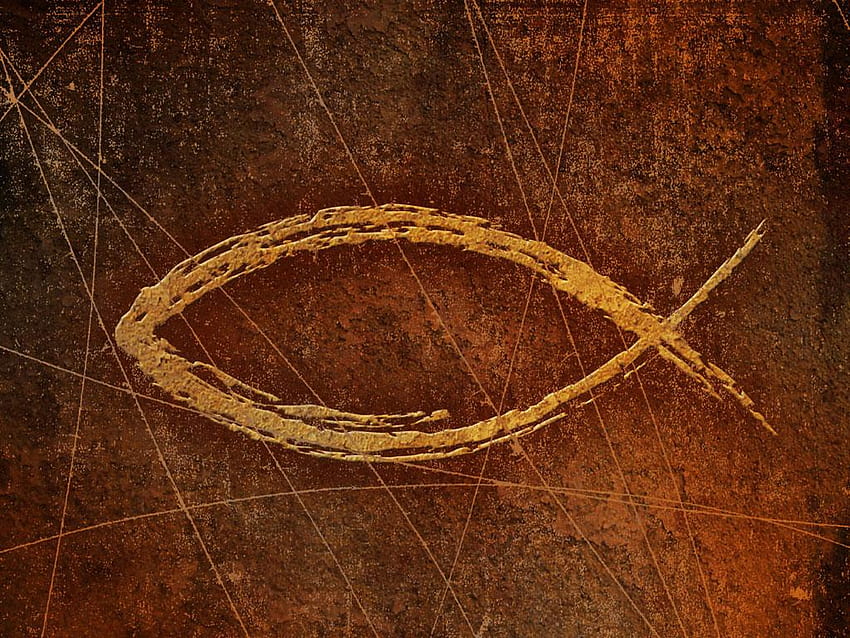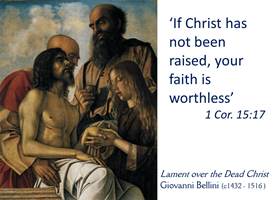
Sermon preached on Sunday 12th May – Easter 7 based on Acts 1:15-17, 21-end,
May I speak and may you hear through the Grace of our Lord; Father, Son and Holy Spirit. Amen
In one of the many art museums that I recently visited in Australia, there was a photographic exhibition of Olympians who came fourth. It portrayed them as they either crossed the line in a race or realised the final positionings of the medals. After all, those who come fourth have just missed out on receiving not only a tangible form of recognition, but whoever remembers who came fourth?
Today in our reading from Acts we have one such person, who came so close, but will forever be remembered, if we even remember his name, as the one that wasn’t chosen to join the most important and influential group within the Christian church.
Throughout this period, we are encouraged to look more closely at the Acts of the Apostles as the fledgling church emerges through the words and actions of those who had become disciples of Jesus. Many of those had become part of a group of people, who had witnessed not only his teaching first hand, but been with him since his baptism by John and had recently witnessed his crucifixion and subsequent predicted but still miraculous resurrection.
The group of the original eleven remaining disciples, who had been chosen by Jesus had now become apostles. As Vicky explained last week, a disciple is a student, a learner, a believer, whilst an apostle is a messenger, one who is sent to deliver those teachings to other.
These eleven, along with Judas had been the ones chosen to work closely with Jesus on a day to day basis for the last three years, gradually being changed from disciples, which all believers are, into apostles.
Now, following the death of Judas, they were feeling obliged to find a replacement, after all eleven is an uneven number, twelve is much more biblical. Had Jesus chosen twelve disciples to mirror the original twelve tribes of Israel, signifying the renewal of the covenant between God and humans.? Or was it because Jesus had chosen the twelve, that the remaining apostles felt a divine purpose that there should continue to be twelve of them.
It’s a shame that we miss out several verses around and within the scripture chosen for today as the answer to the above question was actually given by Peter, when he quotes the psalms not only about the fate of Judas, seen at that time as the betrayer or enemy of Jesus, but from Psalm 109:8 ‘May another take his place of leadership’
So here we have a crowd of believers, numbering ‘about one hundred and twenty’. This group included men and women and it is likely that it also included Mary the mother of Jesus, and his brothers, as the apostles had been staying together in Jerusalem where they had been joined in constant prayer together.
We know this because when Peter stands up his opening words ‘Friends’ are translated from the Greek word adelphoi for brothers and sisters, referring to believers, both men and women, as part of God’s family, although the NRSV translation that the Church of England prefers, give the translation as men or brothers.
This gives us an indication that the replacement is not going to be a radical one for that time! Indeed, Peter confirms that it is to be ‘one of the men’ who had accompanied them throughout this whole time.
How to make that choice though? Even without it being a patriarchal society, it was highly implausible that they would have considered Mary, of Mary and Martha fame, despite her being one of the best students of Jesus, learning at his feet, she may not have qualified as having witnessed the baptism.
What of Jesus’ brothers, in particular James and Jude. There had been a time that they were very sceptical about Jesus’ claims as he went around preaching a different gospel. From within what would have been a devout Jewish family, this would have jarred with their beliefs about the Messiah, but we now realise that they had subsequently become believers with their presence among the group. In fact, James would go on to have a prominent role within the Jerusalem church and both would have books included in New Testament.
The decision then wasn’t to be taken directly by the apostles but handed over to God in prayer for them to then go on to cast lots, almost a game of chance, but a traditional Jewish way for making decisions, between two of the men who met the qualification, Joseph called Barsabbas (also known as Justus) and Matthias.
The holy dozen was therefore restored.
What about the one though who had not been chosen, who essentially came fourth? What was his reaction? Well, he could have had a silent hissy fit and feeling rejected left the group in a huff or been angry with the leaders.
He might even have been angry with God. After all, it was God that had had a hand in this selection, as they had prayed, therefore it was God who decided to not pick Barsabbas. It’s one thing for a person to tell you ‘No,’ but for God to say ‘no’?
Yet we don’t hear of him having any of these negative responses. We see no indication that he reacted with disappointment, because we don’t hear anything about him after this. However, Christian tradition being what it is, he was believed to be one of the seventy disciples sent out by Jesus in Luke’s gospel to the cities he was to visit and is possible that we do see that he stuck around and continued to make God his priority and focus, as with his plethora of names, he could be Judas called Barsabbas, who was chosen to be part of an important delegation sent to Antioch from the apostles and elders of the church.
And as for Matthias? Not another peep in the whole of the New Testament, but again Christian tradition suggests that he did fulfil his apostolic role, by taking the gospel to Aethiopia, not at that time the Ethiopia of the North African continent, but in a region called Colchis in modern day Georgia in Eastern Europe, where he was crucified.
What then does all of this tell us about being disciples and apostles in today’s world, because that is what we are called to be, students of Christ to be sent out as messengers to share that knowledge. How many of us will be remembered in the annals of Christian history? Not many of us I would say.
But we still undertake those roles, knowing that God is always with us. We know that prayer opens the door to a closer relationship with him and that anyone can be called by God, at any time, to further his kingdom and share his message, and also know that God will lead the conversation.
And if God can call us to serve him at any moment of life, then we are never too old or too young to share his love with others. We may be aware that God often chooses the weak and the humble to serve, but that he always equips those whom he calls.
We may not be famous, or need to be placed on a pedestal when we share his Word, because we know that the glory goes to him, not us, but that we are blessed and loved in doing so.
Put very simply, sharing the love of Christ and the message of God comes through our words and actions. It is these things that will be remembered long after we are gone.
Amen




















